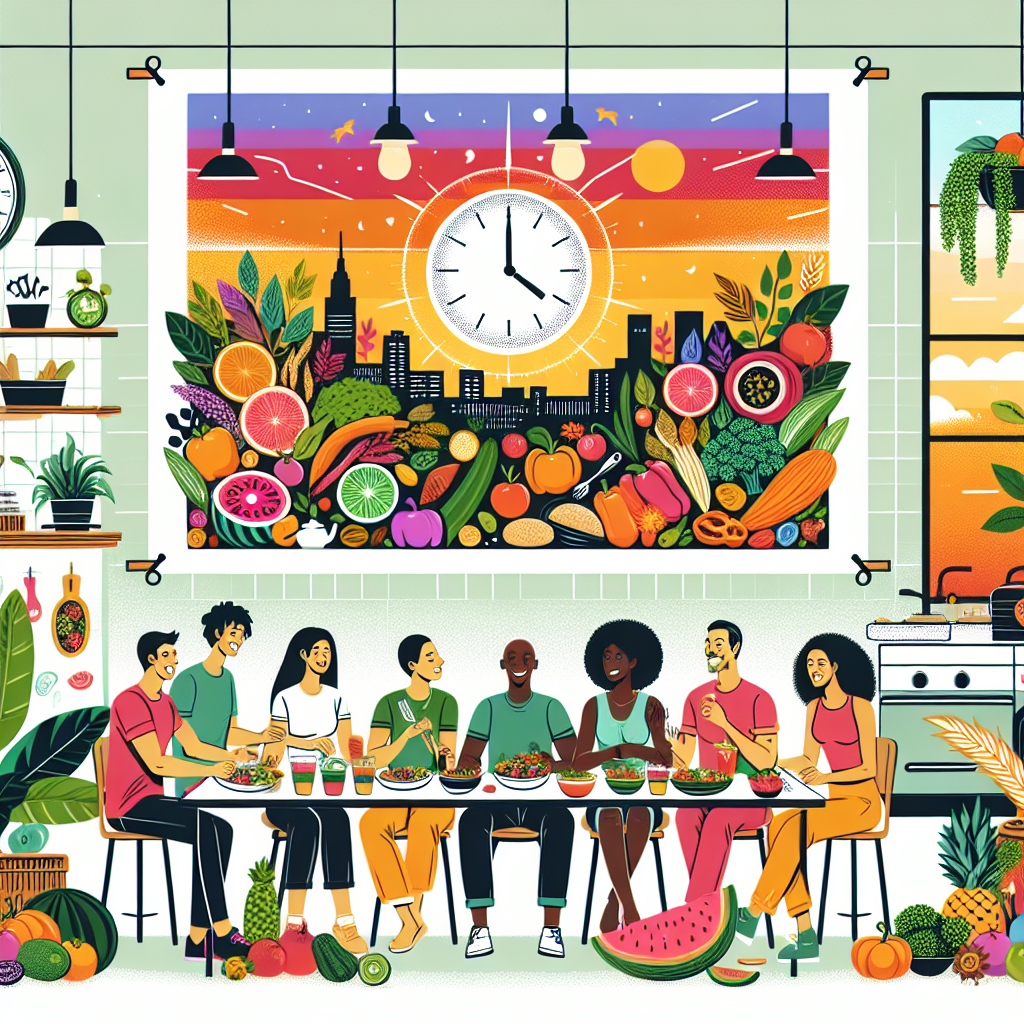
Weekend Vegetarian: Changing the Way America Eats, One Meal at a Time
In recent years, the American approach to food has undergone a notable shift. One of the country’s most influential food movements is the rise of Weekend Vegetarianism — a flexible and sustainable way of eating that encourages individuals to adopt a plant-based diet on weekends while still enjoying an omnivorous diet during the week. This part-time approach presents a realistic pathway toward better health, a reduced environmental impact, and renewed creativity in the kitchen. From bustling metropolises to rural towns, more Americans are skipping meat on weekends — a small shift that is quietly transforming national eating habits.
What Is Weekend Vegetarianism?
Weekend Vegetarianism is a straightforward concept: from Friday evening through Sunday night, you focus solely on vegetarian meals. After the weekend, you return to a regular diet that may include animal products. Unlike fully vegetarian or vegan lifestyles, which can sometimes feel overwhelming for newcomers, this weekend-only practice offers structure without pressure.
It also aligns with the broader “reducetarian” movement — a growing trend where individuals aim to reduce rather than eliminate meat in their diet. A 2022 Reducetarian Foundation report noted that over half of Americans are actively trying to cut back on meat for health or environmental reasons. Even eating vegetarian for just two days a week can yield real benefits.
As Dr. Michael Greger, author of How Not to Die, says, “Even small reductions in meat consumption can lead to large gains in health and longevity. You don’t need to be perfect — just consistent.”
Why Weekend Vegetarianism Is Gaining Popularity
Health Benefits Without Going to Extremes
Adopting a plant-forward diet has been scientifically linked to reduced risks of heart disease by up to 25%, according to the American Heart Association. It also supports better digestion, lower cholesterol, and healthy weight management. However, overhauling your diet completely can be daunting. Weekend Vegetarianism offers a gentler, more manageable alternative while still delivering key health benefits.
Registered dietitian Andrea N. Giancoli explains, “Just a few meat-free days a week still offer significant protective health advantages. It’s a smart way to dip your toes into plant-based eating.”
Eco-Friendly Eating for a Healthier Planet
The livestock industry contributes roughly 14.5% of global greenhouse gas emissions, according to the Food and Agriculture Organization (FAO). By committing to plant-based meals just on weekends, you help reduce your environmental footprint. Research from the University of Oxford indicates that cutting back red meat just two days a week can lower your personal carbon emissions by as much as 20%.
For those curious about more ways to live sustainably, edrugstore.com offers insightful resources on environmentally conscious health habits.
A Culinary Adventure in Every Meal
Vegetarian eating is far from bland. Thanks to a wealth of globally inspired, plant-based recipes, meatless meals can be surprisingly exciting. From spiced Thai noodle stir-fries and creamy chickpea curries to hearty Mediterranean quinoa bowls, weekends become a thrilling exploration of flavor and culture.
For recipe ideas, explore popular resources like Meatless Monday or Forks Over Knives and discover dishes that delight your taste buds.
Building Community Through Food
What we eat shapes how we connect — and plant-based weekends are quickly becoming a cultural touchstone. Whether participating in vegetarian brunches, sharing your favorite lentil soup on social media, or joining recipe forums, Weekend Vegetarianism encourages community, mindfulness, and shared discovery.
Chef and author Bryant Terry emphasizes, “Food is a powerful way to connect not just with culture, but with others on the same journey.”
How to Get Started with Weekend Vegetarianism
Thinking of switching up your routine? Starting your Weekend Vegetarian journey is easier than you might think. Here’s how to begin:
1. Plan Your Weekend Menu
Set yourself up for success by choosing two or three vegetarian meals in advance. Simple options include lentil soup, black bean tacos, veggie stir-fries, and chickpea curry. Aim for high-protein options that use ingredients like legumes, tofu, or tempeh to stay full and satisfied.
2. Stock Your Pantry With Plant-Based Essentials
Having a kitchen stocked with versatile staples helps you cook quickly and creatively. Make sure to keep items like canned beans, whole grains (such as quinoa or brown rice), olive oil, and a variety of or spice blends on hand. Meal prep becomes easier and more affordable with these basics ready to go.
3. Take It One Meal at a Time
You don’t have to commit to an all-vegetarian weekend from the start. Try replacing just one dinner with a vegetarian option, then gradually increase to full days over time. This flexible approach eases the transition and helps create long-lasting habits.
4. Embrace Fresh, Local Produce
Visiting your local farmers market or selecting seasonal produce is both enjoyable and impactful. Seasonal vegetables like eggplant, tomatoes, kale, and squash not only offer better taste but also support local farmers and reduce your carbon footprint.
How Weekend Vegetarianism Is Reshaping American Dining
What started as a personal eating choice has grown into a broader cultural shift. Restaurants across the country — from fast-casual eateries to upscale dining spots — are increasing their plant-based options. According to Statista, plant-based offerings on restaurant menus in the U.S. increased by 37% between 2019 and 2023.
Even big-name steakhouse chains have taken notice. Outback Steakhouse, for example, now features cauliflower steak as an option for flexitarian customers seeking plant-forward meals—just one example of how businesses are adapting to this shift.
The Role of Social Media in Spreading the Message
Weekend Vegetarianism has also gained traction through social media, where influencers, chefs, and celebrities showcase their meatless meals. Figures like Lizzo and Natalie Portman have promoted their part-time plant-based lifestyles through engaging content across platforms. From Instagram-worthy dishes to TikTok cooking tutorials and YouTube “What I Eat in a Weekend” videos, the lifestyle continues to inspire millions.
Final Thoughts: A Simple Change with Big Impacts
Weekend Vegetarianism proves that you don’t have to go all-in to experience the very real benefits of plant-based eating. Whether your motivation is better health, climate consciousness, or simple culinary curiosity, this flexible approach makes transformation feel achievable.
As Friday rolls around, consider switching out a burger for a veggie stir-fry or savoring a warm bowl of black bean chili. You may find that a small change offers big satisfaction — and makes a lasting difference.
Want to share your meatless creations? Join a growing movement and inspire others by posting your dishes using the hashtag WeekendVeggie.
Looking for inspiration? Stay tuned for our upcoming article: “5 Easy and Delicious Vegetarian Dishes to Kick Off Your Weekend.”
References:
– American Heart Association (2021). “Plant-Based Diets and Cardiovascular Health.”
– Food and Agriculture Organization (2023). “Tackling Climate Change Through Livestock.”
– Giancoli, A.N., MPH, RD. Interview, Plant-Based Health 2022 Symposium.
– Reducetarian Foundation Report (2022).
– University of Oxford (2020). “Environmental Impact of Dietary Choices.”
– Terry, B. (2020). “Vegetable Kingdom.”
Discover more health tips and sustainable living ideas at edrugstore.com.


